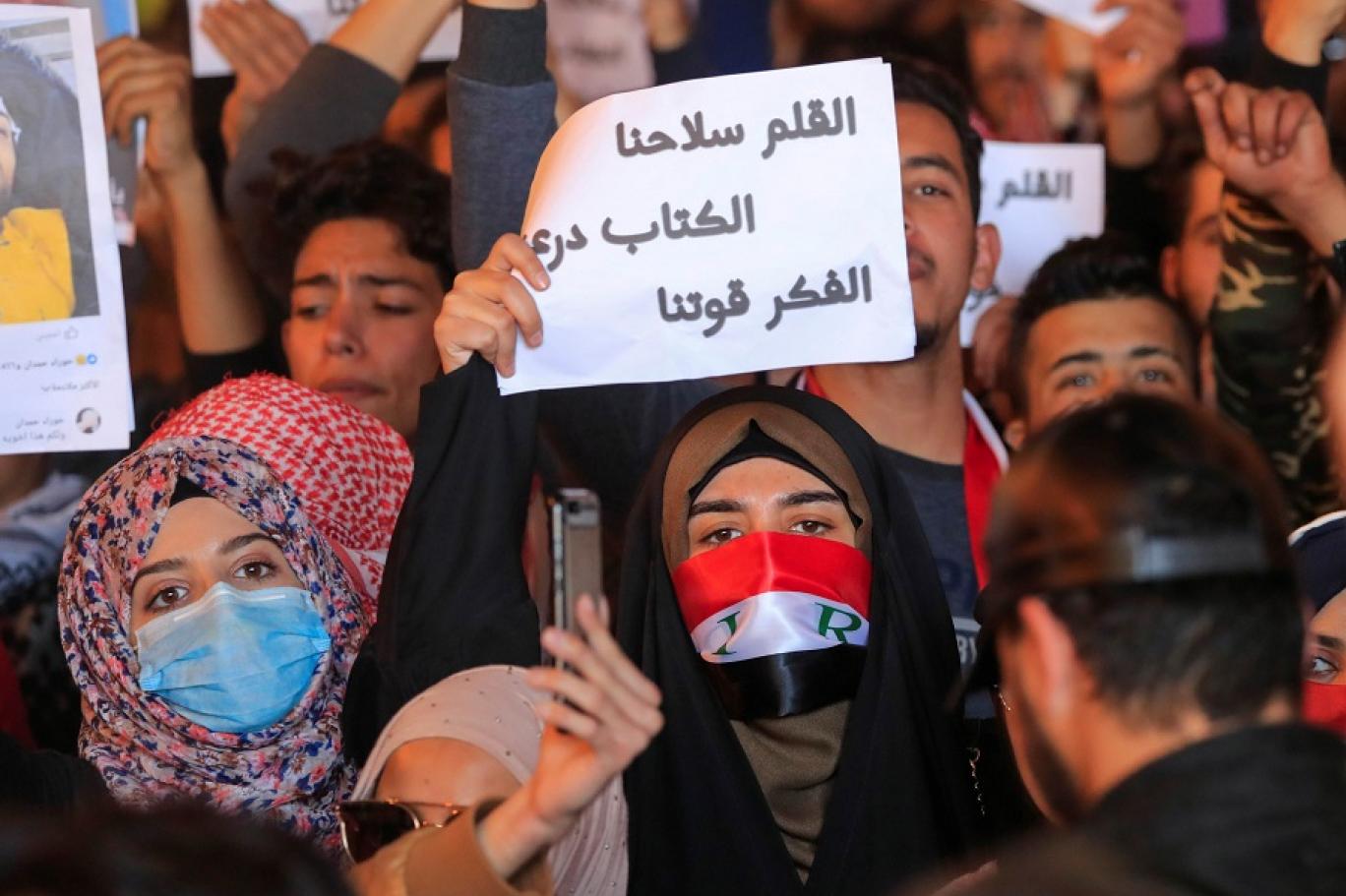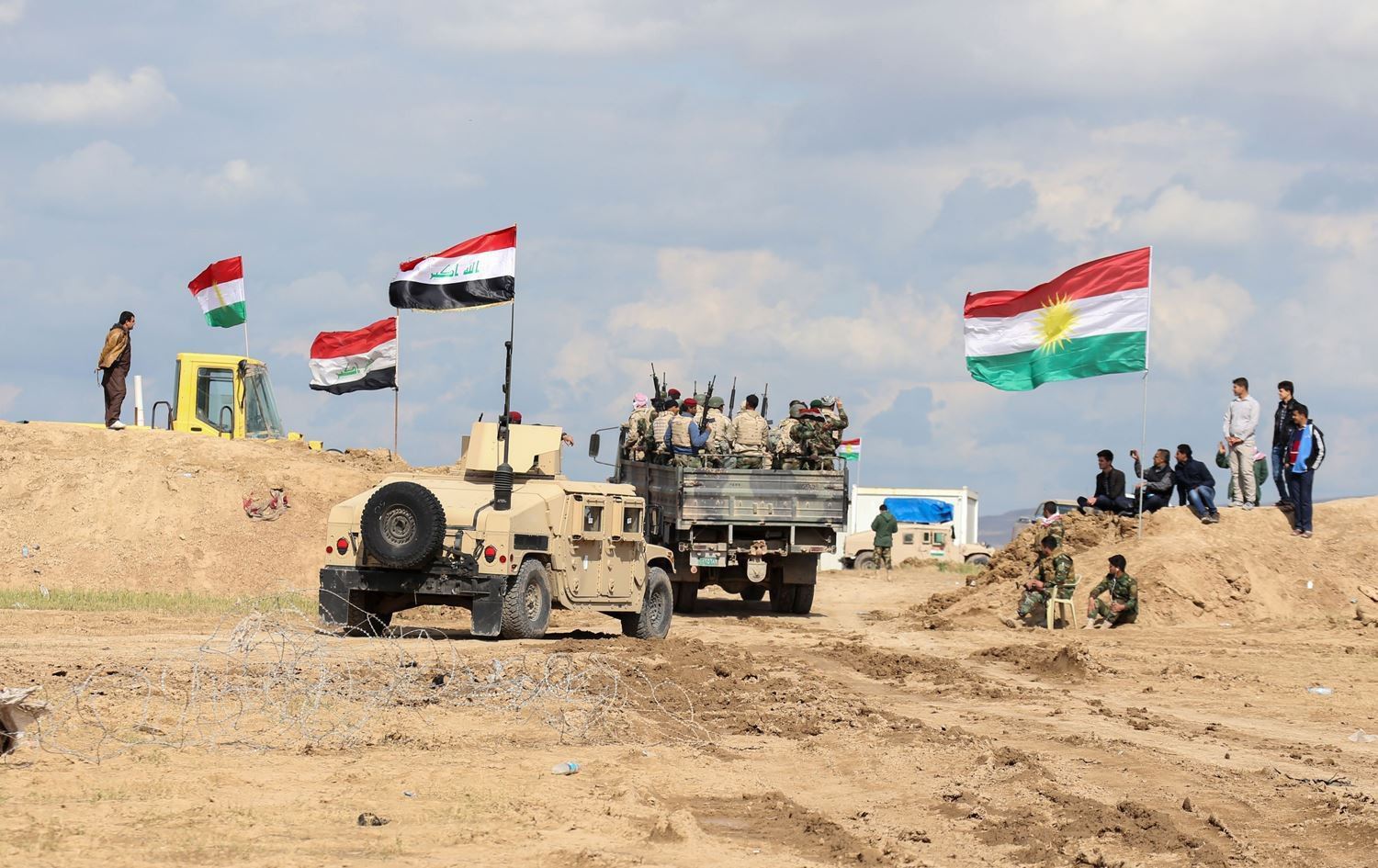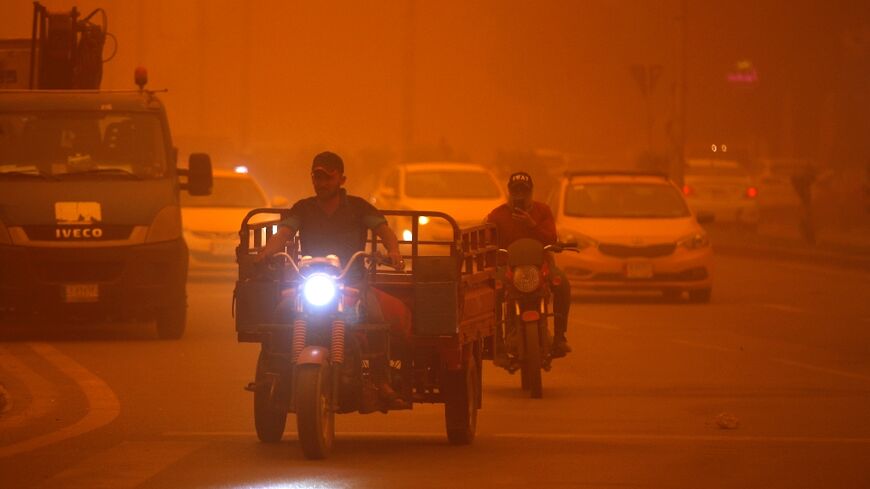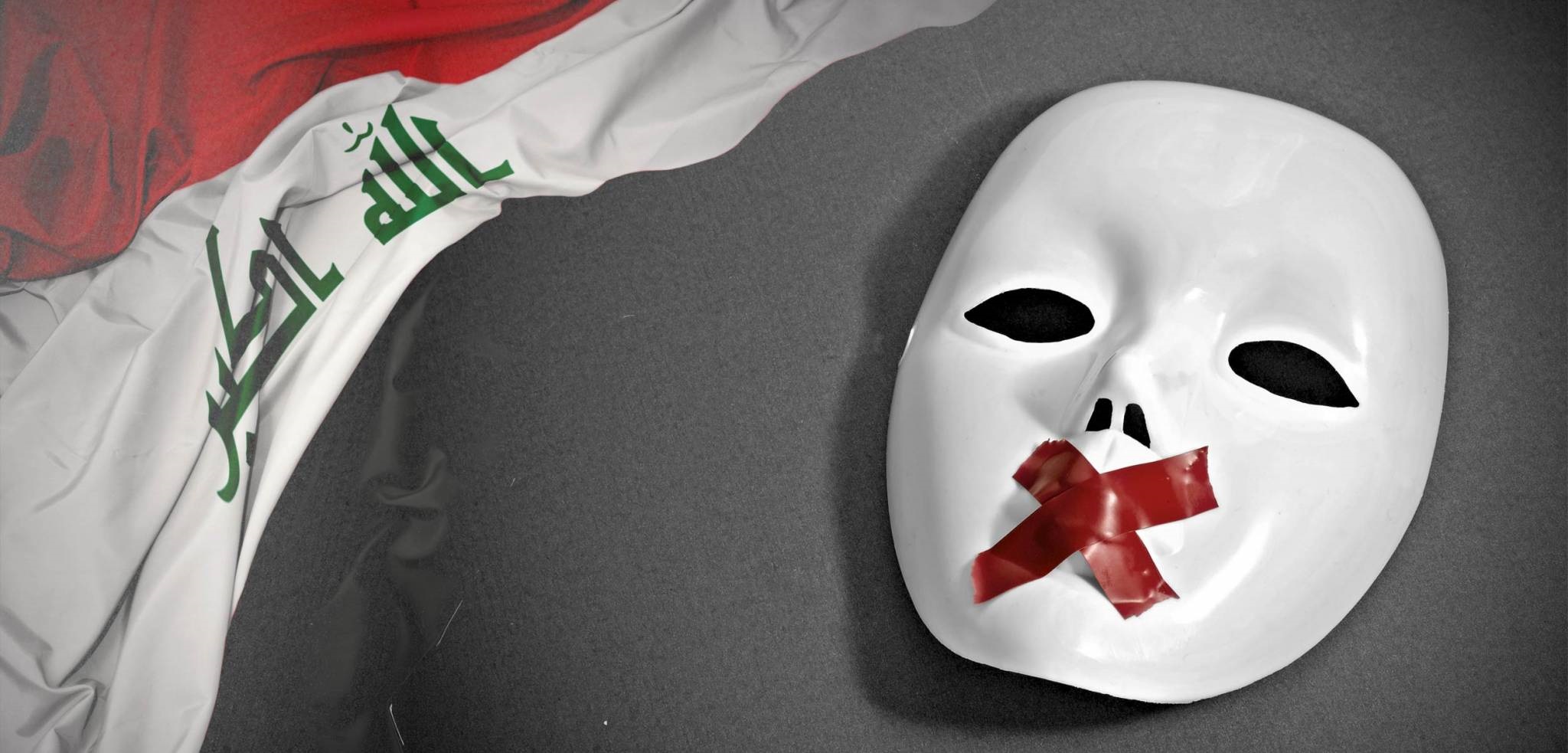In the last few years, the violation of freedom of speech in Iraq has been increasing to reach dangerous levels today. This follows a brief period of relative relaxation that was made possible by the fall of the repressive regime of Saddam Hussein and only due to the fragility of the post-2003 nascent state. Freedom of speech, although constitutionally mandated, has never been institutionalized and protected by a transparent system and coherent legislative structure.
In recent months, this violation of freedom of speech has noticeably intensified to the extent that triggers more concerns regarding the future of Iraq and the rights of its citizens.
This comes after the country and its public authorities have successfully encountered several major challenges, including terrorism. In committing such violations, the state authorities and high-profile officials, including leaders of ruling political parties, usually use expressions such as “degrading public institutions,” “insulting or disrespecting the judicial system,” and “dishonouring patriotic and religious figures” in describing what they see as criminal behaviour, and thus they call for punitive measures against those whose views have been categorized under these labels.
These views fall within the constitutionally guaranteed freedom of speech that has been stipulated in several articles in the constitution and became a defining feature of the emerging post-authoritarian system of government. It is important here to recall that one of the foundational principles of the constitution, which is not subject to amendment, is to prevent the enactment of laws that contradict democracy.
Freedom of speech is the mainstay of democracy, and it is the mother of all freedoms that ought to be practised by citizens without fear of punishment.
Iraq lacks reliable institutional protections for freedom of speech, a renovated legislative code concerning this principle, and an established tradition of respecting individual liberties and freedoms by state authorities. Therefore, saving the democratic path in Iraq can only be achieved by making freedom of speech and its protection of it our biggest priority. The defending of this right is linked to the protection of the Iraqi political system itself and preventing its gradual slide towards the practices of dictatorship and silencing of opposing and critical voices from which Iraq has suffered for so long.
Hence, we believe that all public authorities and officials are required to act according to the constitution. This includes refraining from taking punitive measures such as dismissal from employment, issuing arrest warrants, and deploying politically motivated accusations against those who hold different views: accusations of betrayal, espionage, and involvement in foreign conspiracies against the state and society, in addition to other types of instigation that state officials, politicians, and parliamentarians have been deploying in recent years.
In this context, we find ourselves obliged to reaffirm democratic principles that cannot be ignored by any political system describing itself as democratic; otherwise, it would become tyrannical and would constantly violate the rights of its citizens. Here are these democratic principles:
1- The task of public institutions, including the judiciary, is to serve citizens, and such institutions are neither sacred nor immune from criticism.
2- Criticizing public institutions, including the judiciary, and those in charge of them is a basic right that should be maintained by law and the democratic public sphere. It cannot, in any case, fall under the category of defamation as long as it criticizes these institutions and those in charge of them as public entities and officials without addressing their personal lives.
3- The Iraqi law does not allow the legal prosecution of an Iraqi citizen who publicly criticizes a public official or attributes a specific doing to his/her public duty and shows claim evidence. Hence, the right way to deal with such issues in any democratic system is that public officials affected by criticism can file a lawsuit to determine whether what was attributed to them was true while protecting the accused's right to legal defence. As for the issuance of arrest warrants, the demand for it, the institutional punishment of the opinion-holder, or threatening and intimidating him/her, they all fall within the tyrannical and repressive actions.
4- Public institutions, including the judiciary, have no right to judge citizens' intentions and take actions based on their understanding and interpretation of these intentions. This repeated behaviour leads to the transformation of these institutions into something like inquisition courts for the consciences of Iraqis, which harms their legal and moral legitimacy and takes them outside the framework of their speciality as public service institutions.
5- It is not possible to continue adopting legislations enacted by a totalitarian regime condemned by all, and whose repressive policies had cost the country, countless victims. Such legislations by their nature violate the principle of freedom of speech and are used to threaten and prosecute opinion leaders. We find it necessary for the executive and legislative authorities to amend these legislations in line with Article 38 of the Iraqi Constitution and the universal principles of human rights, particularly the right to freedom of speech.
6- It is necessary to confront the systematic restriction practised by political and official bodies on the right of Iraqi women and men to freely express their opinions. Among those who attempt at imposing such restrictions are high-profile officials who hold public positions at state institutions, some media workers, and influential people on social media platforms. They usually justify their attempts to restrict freedom of speech and intimidate those who hold different views by applying concepts such as "immunity" and "sacredness," on institutions and individuals, official or unofficial, to prevent criticism of those institutions and individuals.
7- In many continuous examples, the way these institutions defend themselves has taken explicit forms of repression and authoritarianism through prosecuting, threatening, and arresting those with critical views, harming their jobs and sources of livelihood, in addition to other forms of abuse in a country with a large number of uncontrolled arms that the state failed to bring under its control. This means putting opponents’ lives at risk and forcing them (and thousands more) into silence.
Without the commitment of public authorities, including the judiciary, to these principles, the country will be placed again on an authoritarian path that leads to a new form of dictatorship, one that is unable to implement its obligations towards its citizens, yet its oppression and ferocity extend to these citizens when they criticize or protest against it.




